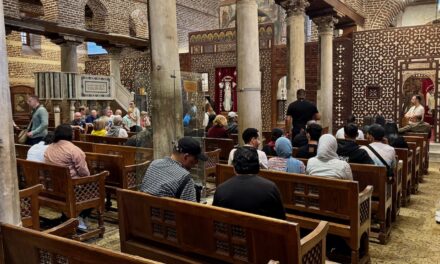
The Crypt Jazz Restaurant
I arrived in South Africa in 2003, directly from Nairobi, Kenya, and via Johannesburg to Cape Town. This completed my two-year Africa Development Research Project that included travels to seven countries in Africa. Since then, I’ve lived off and on in South Africa, principally in Cape Town, for approximately six years, and last departed in 2015. As a jazz enthusiast, I was delighted when The Crypt opened. I’ve visited there several times to enjoy the many remarkably talented local artists. (Photos taken, ca. 2013-15)
Birth of The Crypt
The birth the Crypt Jazz Restaurant is the realization of a dream of one man, Derk Blaisse (seen above), whose love for jazz and good food inspired him to open a jazz club in Cape Town. His dream was shared by the Dean of the St George’s Cathedral, Michael Weeder, a jazz enthusiast himself, who has a vision for Cape Town’s Cathedral as the ‘people’s church’ reaching out to diverse communities through universal language of jazz music featured at The Crypt.


Cape Dutch Connection
“Born in Amsterdam, self-taught pianist Derk Blaisse is well-known in Franschhoek, having relocated there in 1995. In 2000 he started the National Cheese Festival in South Africa, and together with his wife Charlotte Daneel, opened La Fromagerie Restaurant at La Grange in Franschhoek. The restaurant became famous for both its Cheese Platters, and Jazz on Friday, which featured some of the Cape’s top jazz musicians, including his own jazz band, the Cape Dutch Connection.”
Centrally Located
The Crypt is part of [Archbishop] Desmond Tutu’s Memorial and Witness Centre, which memorizes the famous march held in 1989* a few months before Mandela was released from prison. The march started at the Centre of Cape Town which is where St George’s Cathedral is located.


Jazz Enthusiast
Fellow jazz enthusiast, Dean of St. George’s Cathedral, Michael Weeder, has a vision for the St Georges Cathedral as ‘the people’s church’. The Crypt Jazz Restaurant forms part of this vision by reaching out to diverse communities through the universal language of music.
*Note: On 13 September 1989, 30 000 Capetonians from a diverse cross-section of the city marched in support of peace and the end of apartheid. The march resulted in concessions from the apartheid cabinet following years of violent clashes between anti-apartheid protestors and the police. The size of the protest, despite it being illegal open defiance, and the restrained response from the police signaled the beginning of the transition to democracy in South Africa.





